GPS/GNSS Interference in Border Areas: A Rising Concern for National Security
By Defence Journalist Sahil
The increasing interference in GPS/GNSS signals over critical border areas, especially in regions like Jammu and Kashmir (J&K), Punjab, and Rajasthan in India, has raised significant concerns about national security. Recent data, collected from the 4th and 5th of May, 2025, highlights a surge in GPS/GNSS signal disruption not only in these sensitive Indian territories but also in major urban centers in Pakistan such as Lahore and Karachi. This interference, which is suspected to be deliberate, poses a serious threat to the integrity of both military and civilian operations in the region.
A Worsening Trend: Geopolitical Implications
India has long faced challenges in the form of territorial disputes and cross-border conflicts with Pakistan. The most recent rise in GPS/GNSS interference comes amid these tensions, which have escalated in recent years due to the ongoing border standoffs, terror threats, and military confrontations. The disruption of satellite navigation systems is especially dangerous as it can severely hamper military operations, rescue missions, and critical infrastructure development.
The data analysis from 4th and 5th May 2025 shows consistent disruptions in the satellite signals over India’s sensitive border areas. These areas—J&K, Punjab, and Rajasthan—are among the most strategically significant regions in India, given their proximity to Pakistan and the long-standing security challenges associated with them.
In J&K, where India’s security apparatus is constantly on high alert due to frequent insurgencies and military confrontations, GPS interference could directly impact surveillance and communication systems, which are heavily reliant on precise satellite navigation. Similarly, in Punjab, known for its proximity to Pakistan’s eastern border, interference with GNSS signals could hinder counterterrorism operations and border surveillance mechanisms.
The situation in Rajasthan, a state that shares a large portion of its border with Pakistan, is equally concerning. This area has long been a hotspot for military activity, and disruptions in GPS/GNSS signals here could severely impact not just military operations but also civilian transportation systems and emergency services.
Pakistan’s Urban Centers Affected
Interestingly, the interference is also being reported in Pakistan’s major cities of Lahore and Karachi. These cities are critical from both a civilian and military standpoint. Lahore, close to the Indian border, has strategic significance, while Karachi is a key economic hub. The presence of interference in these areas adds another layer of complexity to an already tense security environment. It raises suspicions about the possibility of coordinated efforts to disrupt the functioning of GPS/GNSS services across both sides of the border, potentially to interfere with the movement of troops, weapons, and other vital logistics.
Implications for National and Regional Security
The potential of GPS/GNSS signal jamming or spoofing in these areas is a matter of grave concern. For military forces, the loss of reliable satellite navigation can impede operations ranging from troop movement coordination to precision-guided munitions targeting. Civilian operations that rely on GPS, such as transportation networks, air traffic control, and emergency services, would also face disruptions, endangering the public.
Moreover, the disruption of satellite signals in the region is not just a technical issue but one that has broader geopolitical implications. The use of GPS/GNSS interference could be a tactic to exacerbate already heightened tensions between India and Pakistan. It could be part of an effort to destabilize security operations or sow confusion among forces on both sides of the border, making it harder for authorities to respond effectively to security threats.
Addressing the Threat: Technological and Diplomatic Responses
To counter these challenges, both India and Pakistan need to strengthen their respective defense and security measures. Militaries in both countries must invest in alternative navigation technologies, such as inertial navigation systems (INS), which can be used as backups during GPS/GNSS disruptions. Additionally, both countries must increase cooperation in regional security dialogues to address the growing concerns about such interference and avoid misunderstandings that could escalate into full-fledged conflicts.
On the diplomatic front, India may take this issue to international platforms like the United Nations or the International Telecommunication Union (ITU) to raise awareness of the growing threat posed by GPS/GNSS interference, which is a clear violation of airspace sovereignty and international law.
The increasing GPS/GNSS interference serves as a reminder of the modern warfare tactics and technologies that are shaping today’s geopolitical challenges. It is crucial for both India and Pakistan to recognize the threat posed by these disruptions and take swift and coordinated steps to mitigate their impact.
सीमा क्षेत्रों में GPS/GNSS हस्तक्षेप: राष्ट्रीय सुरक्षा के लिए बढ़ता खतरा
By Defence Journalist Sahil
जम्मू और कश्मीर (J&K), पंजाब और राजस्थान जैसे संवेदनशील सीमा क्षेत्रों में GPS/GNSS सिग्नल हस्तक्षेप में वृद्धि ने राष्ट्रीय सुरक्षा को लेकर गंभीर चिंता बढ़ा दी है। 4 और 5 मई 2025 को एकत्रित किए गए डेटा से यह स्पष्ट होता है कि भारत के इन महत्वपूर्ण क्षेत्रों के साथ-साथ पाकिस्तान के प्रमुख शहरी केंद्रों जैसे लाहौर और कराची में भी GPS/GNSS हस्तक्षेप बढ़ गया है। यह हस्तक्षेप, जिसे जानबूझकर किया गया माना जा रहा है, क्षेत्र में सैन्य और नागरिक संचालन की अखंडता के लिए गंभीर खतरा उत्पन्न करता है।
बढ़ती चिंता: भू-राजनीतिक प्रभाव
भारत को पाकिस्तान के साथ सीमा विवाद और सीमापार संघर्षों के रूप में लंबे समय से चुनौतियों का सामना करना पड़ा है। हाल के वर्षों में सीमा पर गतिरोध, आतंकवादी खतरों और सैन्य टकरावों के कारण इन चुनौतियों में वृद्धि हुई है। उपग्रह नेविगेशन प्रणालियों का विघटन विशेष रूप से खतरनाक है क्योंकि यह सैन्य संचालन, बचाव कार्यों और महत्वपूर्ण बुनियादी ढांचे के विकास को गंभीर रूप से प्रभावित कर सकता है।
4 और 5 मई 2025 के डेटा विश्लेषण से यह पता चलता है कि भारत के संवेदनशील सीमा क्षेत्रों में लगातार सिग्नल व्यवधान हो रहे हैं। जम्मू और कश्मीर, पंजाब और राजस्थान जैसे क्षेत्रों को लेकर सुरक्षा बलों के लिए विशेष रूप से महत्वपूर्ण हैं, क्योंकि ये पाकिस्तान के पास स्थित हैं और इनसे जुड़े सुरक्षा खतरे लंबे समय से चल रहे हैं।
J&K में, जहां भारत की सुरक्षा व्यवस्था बार-बार आतंकवादियों और सैन्य संघर्षों से प्रभावित होती है, GPS हस्तक्षेप सीधे तौर पर निगरानी और संचार प्रणालियों को प्रभावित कर सकता है, जो उपग्रह नेविगेशन पर बहुत अधिक निर्भर हैं। इसी तरह, पंजाब में, जो पाकिस्तान की पूर्वी सीमा के पास स्थित है, GNSS सिग्नल में हस्तक्षेप आतंकवाद रोधी अभियानों और सीमा निगरानी तंत्र को बाधित कर सकता है।
राजस्थान में स्थिति उतनी ही गंभीर है। यह राज्य पाकिस्तान के साथ अपनी सीमा के बड़े हिस्से को साझा करता है और यहां की गतिविधियां सैन्य दृष्टिकोण से अत्यधिक महत्वपूर्ण हैं। GPS/GNSS सिग्नल में व्यवधान यहां न केवल सैन्य संचालन बल्कि नागरिक परिवहन प्रणालियों और आपातकालीन सेवाओं को भी प्रभावित कर सकता है।
पाकिस्तान के शहरी केंद्रों में हस्तक्षेप
दिलचस्प बात यह है कि पाकिस्तान के प्रमुख शहरों लाहौर और कराची में भी हस्तक्षेप की सूचना मिल रही है। ये शहर नागरिक और सैन्य दृष्टिकोण से अत्यंत महत्वपूर्ण हैं। लाहौर, जो भारतीय सीमा के करीब है, सामरिक दृष्टिकोण से महत्वपूर्ण है, जबकि कराची पाकिस्तान का आर्थिक केंद्र है। इन क्षेत्रों में हस्तक्षेप की उपस्थिति इस बात को और अधिक जटिल बना देती है। यह संदेह उत्पन्न करता है कि दोनों देशों के बीच GPS/GNSS सेवाओं को बाधित करने के लिए समन्वित प्रयास हो सकते हैं, जिससे सैनिकों, हथियारों और अन्य महत्वपूर्ण आपूर्ति की आवाजाही में रुकावट आए।
राष्ट्रीय और क्षेत्रीय सुरक्षा पर प्रभाव
GPS/GNSS सिग्नल जामिंग या स्पूफिंग का संभावित खतरा गंभीर चिंता का विषय है। सैन्य बलों के लिए, विश्वसनीय उपग्रह नेविगेशन की कमी से ऑपरेशनों में गंभीर रुकावट आ सकती है, जिनमें सैनिकों की आवाजाही से लेकर सटीक मार्गदर्शन वाले हथियारों का उपयोग तक शामिल है। जो नागरिक ऑपरेशंस GPS पर निर्भर हैं, जैसे परिवहन नेटवर्क, हवाई यातायात नियंत्रण, और आपातकालीन सेवाएं, वे भी विघटन का सामना करेंगे, जिससे सार्वजनिक जीवन खतरे में पड़ सकता है।
इसके अलावा, क्षेत्र में उपग्रह सिग्नल्स का विघटन केवल एक तकनीकी मुद्दा नहीं है बल्कि एक व्यापक भू-राजनीतिक चुनौती है। GPS/GNSS हस्तक्षेप का उपयोग एक रणनीति हो सकती है जिससे पहले से बढ़ी हुई भारत-पाकिस्तान तनाव की स्थिति को और अधिक बढ़ाया जाए। यह सुरक्षा संचालन को अस्थिर करने या सीमा पर दोनों पक्षों के बीच भ्रम फैलाने के प्रयास का हिस्सा हो सकता है, जिससे अधिकारियों के लिए सुरक्षा खतरों का प्रभावी ढंग से जवाब देना और भी कठिन हो सकता है।
खतरे का समाधान: प्रौद्योगिकीय और कूटनीतिक प्रतिक्रियाएं
इन चुनौतियों का मुकाबला करने के लिए भारत और पाकिस्तान दोनों को अपनी-अपनी रक्षा और सुरक्षा उपायों को मजबूत करना होगा। दोनों देशों के सैन्य बलों को वैकल्पिक नेविगेशन प्रौद्योगिकियों में निवेश करना चाहिए, जैसे इंटेरटियल नेविगेशन सिस्टम (INS), जिन्हें GPS/GNSS विघटन के दौरान बैकअप के रूप में उपयोग किया जा सकता है। इसके अलावा, दोनों देशों को क्षेत्रीय सुरक्षा वार्ताओं में सहयोग बढ़ाना चाहिए, ताकि GPS/GNSS हस्तक्षेप के बढ़ते खतरे को संबोधित किया जा सके और ऐसे कुप्रबंधन से बचा जा सके जो युद्ध की स्थिति में न बदल जाए।
कूटनीतिक दृष्टिकोण से, भारत इस मुद्दे को अंतरराष्ट्रीय मंचों जैसे संयुक्त राष्ट्र या अंतर्राष्ट्रीय दूरसंचार संघ (ITU) में उठा सकता है, ताकि GPS/GNSS हस्तक्षेप के बढ़ते खतरे के बारे में जागरूकता बढ़ाई जा सके, जो वायुक्षेत्र संप्रभुता और अंतरराष्ट्रीय कानून का स्पष्ट उल्लंघन है।
बढ़ते GPS/GNSS हस्तक्षेप ने आधुनिक युद्ध तकनीकों और प्रौद्योगिकियों को स्पष्ट किया है जो आज की भू-राजनीतिक चुनौतियों को आकार दे रहे हैं। भारत और पाकिस्तान दोनों के लिए यह महत्वपूर्ण है कि वे इन विघटनकारी खतरों को पहचानें और उनके प्रभाव को कम करने के लिए त्वरित और समन्वित कदम उठाएं।

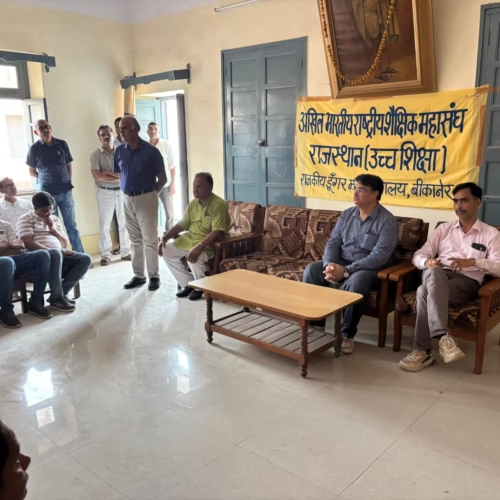

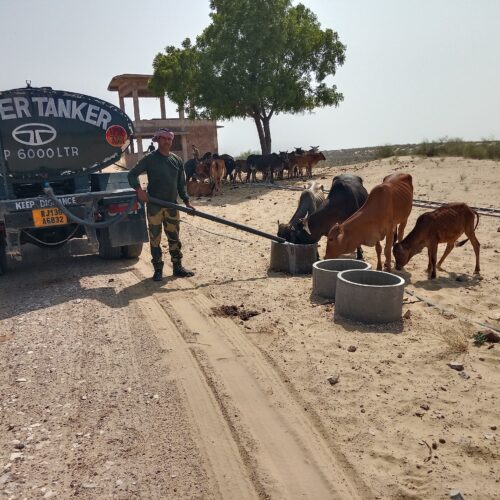

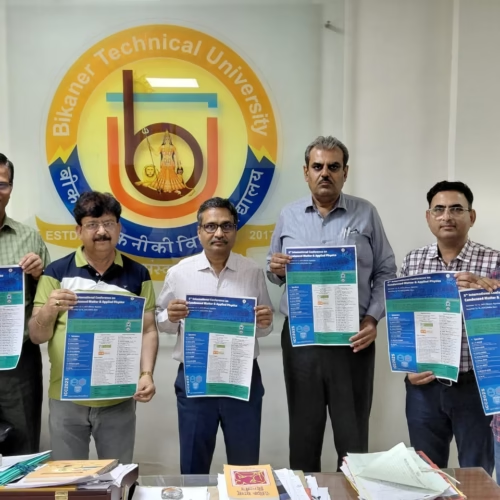
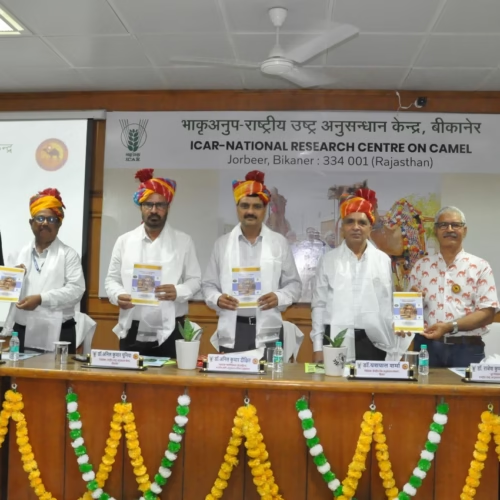

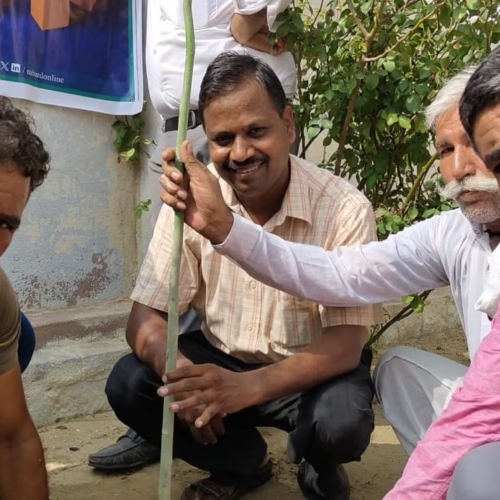



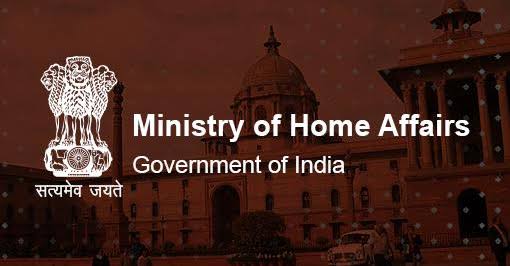




Add Comment